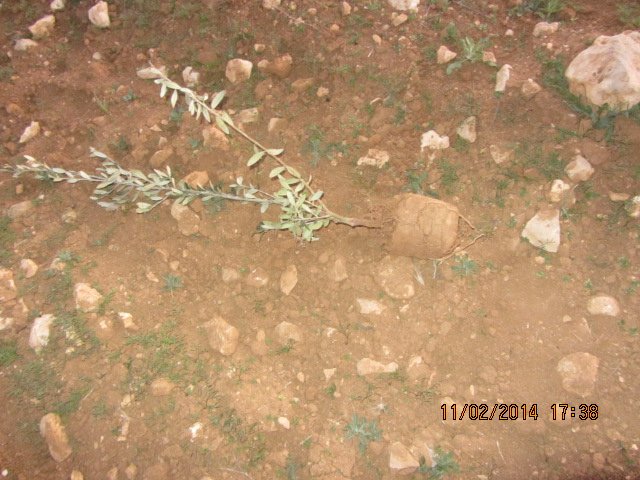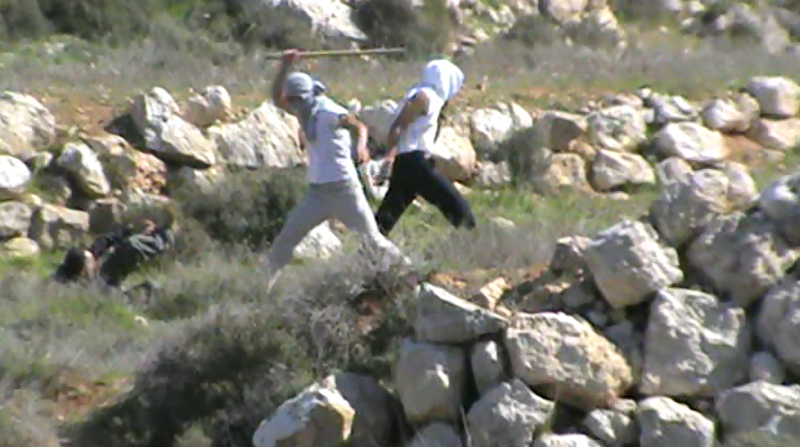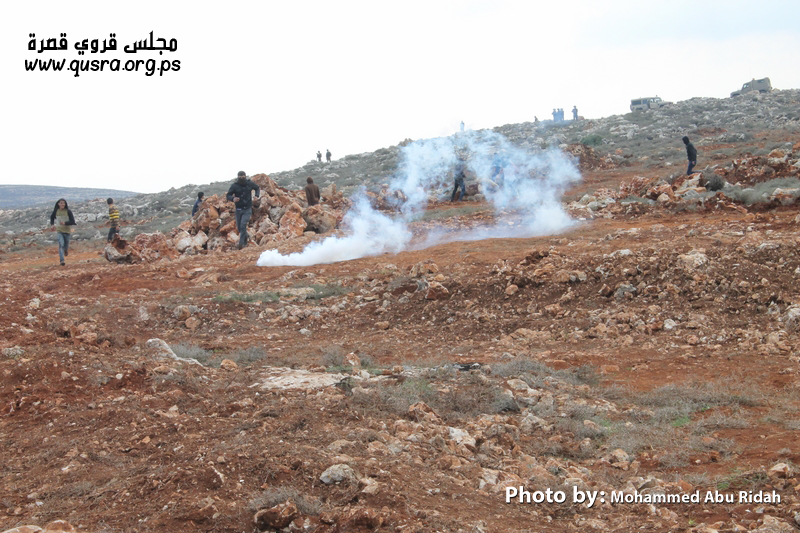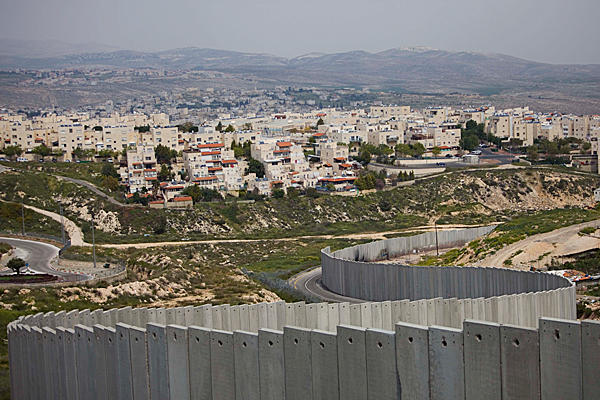Tag: Settlers
-

Eighty young olive trees uprooted in South Hebron Hills
14th February 2014 | Operation Dove | At Tuwani, Occupied Palestine On the afternoon of February 11, Palestinians discovered about eighty olive trees uprooted alongside bypass road 317 near the Susiya junction in the South Hebron Hills. The olive tree grove belongs to the Hushiya family from the nearby town of Yatta and had been…
-

Israeli forces protect settlers as they cut down Palestinian family’s trees
12 February, 2014 | International Solidarity Movement, Khalil Team | Hebron, Occupied Palestine On the afternoon of February 11, 2014, settlers in the Tel Rumeida neighborhood of Al-Khalil (Hebron) cut down trees belonging to the Abu Eisheh family. While attempting to film the destruction of the trees, four human rights activists were arrested by Israeli…
-

Settlers attack Palestinian shepherds, Israeli activists and internationals during nonviolent action in South Hebron Hills
8th February 2014 | Operation Dove | At Tuwani, South Hebron Hills, Occupied Palestine On the morning of February 8, 2014, during a nonviolent action claiming the right of Palestinians to access their own land, a group of settlers from the illegal outpost of Mitzpe Eshtamoa attacked Palestinians, Israeli activists and internationals with stones and sticks,…
-
Military repression following a settler attack in Qusra
7th January 2014 | International Solidarity Movement, Nablus Team | Qusra, Nablus District, Occupied Palestine On the 7th of January in Qusra, two farmers working on their land were threatened by settlers carrying guns. Villagers helped them to chase the invaders away before being violently repressed by the army. On Friday, at 10:30 a.m., two…
-
Firms active in the settlements are facilitating abuses of human rights – UN report says
24th January 2014 | European Coordination of Committees and Associations for Palestine | Brussels, Belgium The UN report is the result of a mission investigating Israeli settlements in the West Bank, including East Jerusalem. Information gathered by the mission shows that private firms have enabled, facilitated and profited, directly and indirectly, from the construction and growth of the…


